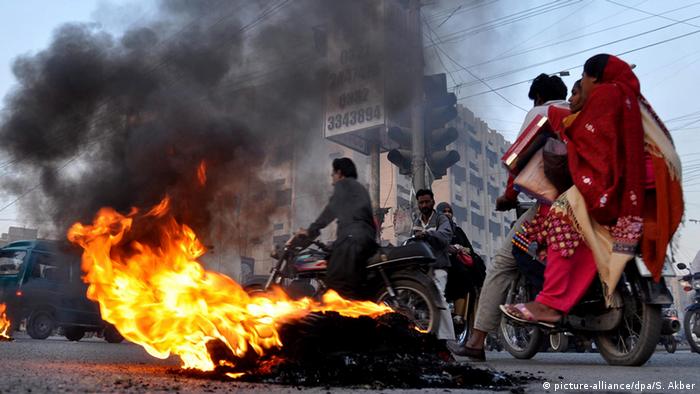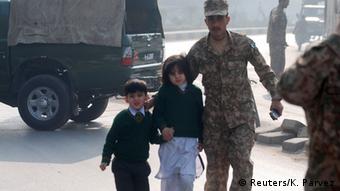By Alessandro Bruno
Libya is in chaos; it has been since the West (especially France) and Qatar-aided civil war that brought an end to Colonel Qadhafi’s regime, which had lasted 41 years and guaranteed, if not democracy, the kind of stability that is now sorely missing from the North African country.
The emergence of Islamic State (ISIS) in Libya is just the latest, if predictable, iteration of Libya’s anarchy. The increased numbers of migrants venturing to reach European (Italian) shores, whom traffickers have been forcing aboard crafts unsuitable to navigate stormy winter waters, are but one example of the fertile ground that Libya offers for criminal activity. Over 300 migrants went missing last week trying to reach the Italian island of Lampedusa, while the survivors who made it across spoke of an increasingly difficult situation in Tripoli. The reported beheading of 21 Egyptian Copts, kidnapped by an ISIS-linked group in Derna (in the east) only served to highlight Libya’s deepening crisis.
The country continues to be divided politically by two governments and two parliaments. And in recent weeks, ISIS affiliates have strengthened and conquered new territories, which Egypt has already attacked following the killing of its 21 citizens. A diplomatic solution in the short-term seems impossible (there is no credible interlocutor) and, encouraged by Egypt’s President Mohammed al-Sisi, who seems highly motivated to lead a major military campaign (perhaps to distract his people from chronic social and economic problems), the EU and United States appear increasingly interested in pursuing a military solution.
A military solution, however, would be at best ill-considered and at worst catastrophic; after all, it was outside military intervention that is largely responsible for Libya’s current mess.
The main reason why a military intervention, even one in the guise of a peacekeeping mission, is unwarranted is the sheer complexity of its crisis, which, Islamic State aside, had already become more complicated and difficult over the course of the last year. One of the main problems is that by intervening, any international force would necessarily have to adopt a local political ally – either the Eastern ‘government’ in Bayda led by Prime Minister Abdullah al-Thani (and backed by General Haftar) or the Western government in Tripoli led by ‘Dawn of Libya,’ a group related to the Muslim Brotherhood and backed by Islamist militias. Both are threatened by ISIS, but foreign military intrusion would be biased and rather than restoring the conditions for the resumption of a political process extended to all of Libya’s social and tribal components, it would likely choose to back General Haftar’s forces and ultimate rule.
Indeed there is some blame to be dispensed involving Libya’s descent into its present catastrophic situation. The idea to make Libya, intended as a union of the three former Ottoman provinces of Tripolitania, Cyrenaica, and Fezzan, into a single state was the brainchild of Italian dictator Benito Mussolini in 1932. After the fall of the Qadhafi regime in 2011, Libya has suffered a ‘bit of everything.’ There were two parliamentary elections (2012 and 2014), even though Libya remained effectively under the control of dozens of militias. Many political entities, under militia influence, refused to recognize the electoral results of 2014, deciding to establish an alternative government and parliament in Bayda. Then there is Libya’s geography: Libya has six million inhabitants and covers an area six times Italy or five times France. Most Libyans live on the coast, the rest of the territory is practically desert. There are two major regions, separated by the Gulf of Sirte: Tripolitania in the west and Cyrenaica in the east. The current struggle, in broad terms, is between the Bayda government, in eastern Libya, recognized by the international community and the “Dawn of Libya” in Tripoli. The foreign coalition would have to decide which of these two governments to support, once again causing excessive interference in Libya’s affairs. Moreover, there are divisions within the divisions. Gen. Khalifa Haftar (who was once a Qadhafi ally, participating in the 1969 coup against the monarchy), at first seemed willing to lead a coup against al-Thinni. Today he is his “ally,” which is true insofar as fighting Islamist militias (his forces have control of some aircraft, which have been used to conduct bombardments against enemies).
And what of Islamic State and its presence in Libya? There are two Libyan cities controlled at least in part by militias considered close to the Islamic State: Derna in eastern Libya not too far from Beyda, and Sirte, not too far from Tripoli, which has been under attack in the past few days. It seems that ISIS in Libya is formed mainly by Libyans who have returned from the war in Syria, and according to some counts, there are about a thousand of them.
Egypt openly supports General Haftar and the legitimate government and has launched a series of bombings on targets believed to be ISIS training camps and weapons depots; what’s to stop him from attacking the Tripoli government? The threats to Europe are mainly to Italy, whose government hinted that Italy would be willing to send a military contingent in the framework of international law, under the UN and possibly as a peacekeeping mission. Italy is the European country closest to Libya, geographically and economically. Italy imported at least a fifth of its oil and a tenth of its natural gas from Libya (although supplies have been erratic over the last two years). However, of great concern is that the current Libyan situation has served as one of the main causes of the increase in arrivals of immigrants through the central Mediterranean (more than one hundred thousand in 2014, twice the amount of 2013). Nevertheless, armed intervention in Libya would pave the way for a new bloody war that would fuel ever more terrorism, increase instability, and not help the victims.
After the dramatic failure of the intervention against Qadhafi in 2011- which opened the current Pandora’s Box – a Western war in Libya would not lead to any solution, though it would give ISIS and other jihadist factions a chance to re-launch their “holy war” against the new crusaders. The political and military authorities of two, if not three, governments claiming sovereignty are already dealing with dozens of jihadi militias fighting each other, often on swiftly changing fronts– and all this before ISIS got involved. Saudi Arabia and Qatar have played their role in backing some of the militias, fighting each other by proxy (as in Syria), while Egypt’s President al-Sisi, not really a champion of democracy, is eying the possibility of gaining some Libyan territory and/or is using Libya as a distraction from Egypt’s many problems. Current military solutions discussed by the West suggest the deployment of a few thousand troops, perhaps comparing the mission to that of UNIFIL in Lebanon.
However, UNIFIL is totally different. There is an agreement between Israel and Hezbollah that, at the time, has allowed for the UN to deploy a peacekeeping force; in Libya there is total anarchy, and Western forces would only add to that anarchy. It is impossible to intervene with a peacekeeping force if there is no peace to keep. An intervention of this type requires at least an agreement between two parties fighting over a territory. In Libya, there are multiple parties and no agreements. It would take tens of thousands of troops to have any real impact. Military intervention makes no sense and, as impossible or difficult as it sounds, a political solution is the only way – even if it means breaking Libya into a federation as it was in the years before Qadhafi. The West has confronted the problem of terrorism since 2001 through military means, achieving absolutely nothing but military occupation of so-called ‘rogue’ states, generating even more terrorism. Finally, the interventions against Qadhafi, misguided as that was in hindsight, cannot be used as an excuse to intervene again now. The one against Muammar Gaddafi was an intervention against a state that no longer exists. Now the West would be intervening in a country torn by civil war, like Somalia.
ISIS flags may be flying in Tripoli, trying to take over where the Muslim Brotherhood began, but Qadhafi did ‘tell us so.’
















